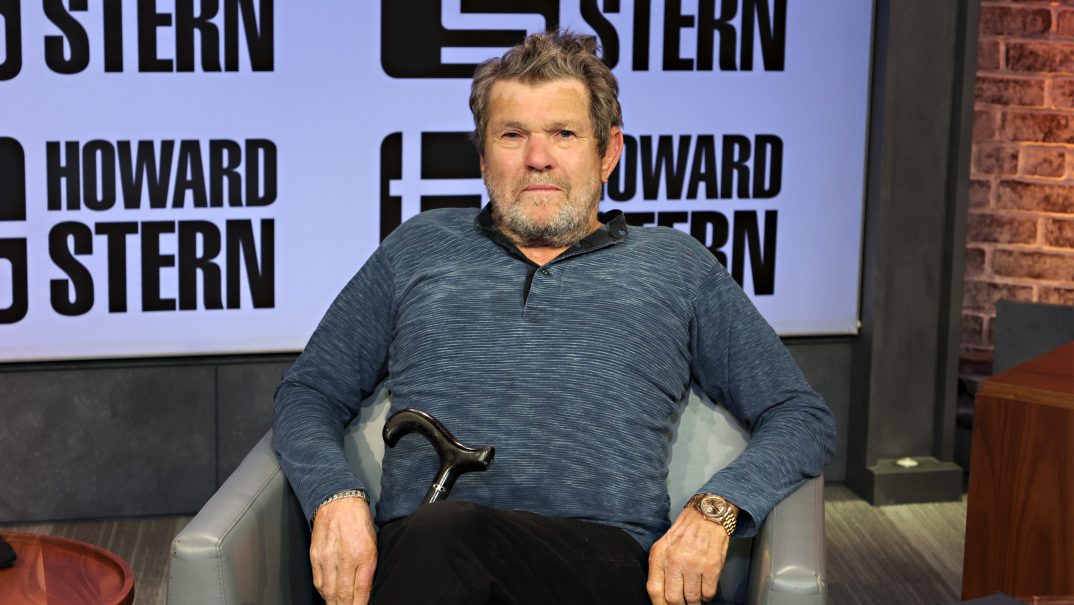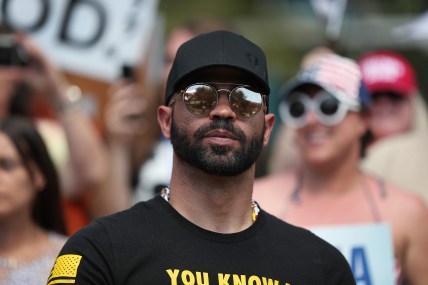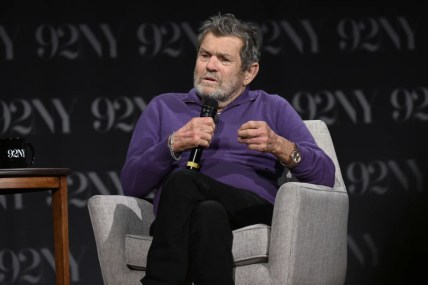Jann Wenner is an example of why Black media matters
OPINION: The Rolling Stone magazine co-founder wrote a book about “the masters” of rock and roll, and he didn’t include any Black artists because they weren’t in his “zeitgeist.”

Editor’s note: The following article is an op-ed, and the views expressed are the author’s own. Read more opinions on theGrio.
A high level of arrogance is one of the bigger items included in the whiteness welcome kit.
It’s a level of arrogance so high that a Martian couldn’t reach it.
This is a story about Jann Wenner.
His name is pronounced like “yawn,” and honestly that is so apt considering the thing I’m about to talk about, I’m just going to refer to him as Yawn throughout this piece. Consider it a mnemonic to help you remember how to pronounce his first name.
His last name is pronounced like “winner,” and this week, he is the winner of the White People Always Saying the Quiet Part Out Loud Award.
Yawn is the co-founder of Rolling Stone magazine, a publication that is ostensibly the Harvard of music publications. People look to Rolling Stone for great interviews and good journalism, which is why a recent interview Yawn the Arrogant did with the New York Times has people shaking their heads and giving Yawn the side eye.
Let me first give props to David Marchese, the journalist who interviewed Yawn. David kept his foot on Yawn’s neck the entire time, and he did not let him get off easy on tough questions.
Yawn has a new book coming out Sept. 26 called “The Masters,” which features selected interviews from the time he spent at Rolling Stone (he left in 2019). The only people included in the book are white men.
In the introduction to the book, Yawn himself says that people of color and women were just not in his “zeitgeist.”
When Marchese pushed back by naming Stevie Wonder and other white women performers, Yawn said the following:
When I was referring to the zeitgeist, I was referring to Black performers, not to the female performers, OK? Just to get that accurate. The selection was not a deliberate selection. It was kind of intuitive over the years; it just fell together that way. The people had to meet a couple criteria, but it was just kind of my personal interest and love of them. Insofar as the women, just none of them were as articulate enough on this intellectual level.
The bold emphasis there is mine.
He wanted to make sure Marchese knew he just meant he didn’t care about Black people, OK?
Never mind that Black people helped form the very foundation of rock and roll music.
“Rocket 88,” which was recorded in 1951 by Ike Turner’s band Kings of Rhythm, is widely considered to be the first rock and roll record. The phrase “rock ‘n’ roll” can be traced back to Black music.
Sister Rosetta Tharpe was the godmother of this movement. She was a gospel guitarist who influenced everyone.
Little Richard, Fats Domino, Chuck Berry and Bo Diddley were some of the first artists to transition to the rock and roll sound, implementing elements of rock and roll into their already well-established rhythm and blues music.
White artists of the time were heavily influenced by the music of Black artists, and they copied a lot of what Black artists were doing. Quite a few of them built entire careers covering songs already made by Black artists.
Don’t even get me started on Elvis Presley and “Hound Dog.”
Big Mama Thornton wailed so Elvis Presley could colonize and gyrate. It’s been said that Elvis stole his entire persona from a Black man named Roy Hamilton.
Apparently, none of this matters to Yawn. He’s perfectly content acting like Black people don’t exist in music so he can build monuments to the white people who copied them.
That is the power of whiteness. It gives you a level of arrogance that makes you entirely comfortable with openly admitting that you, as the co-founder of what is referred to as the “Bible of Rock and Roll” are decidedly biased toward white men in music.
Yawn, BFFR.
That actually isn’t the only egregious thing Yawn admitted to in the N.Y. Times interview.
He also told Marchese that when he interviewed artists such as Bono, John Lennon, and Mick Jagger — people that he also considers to be friends — he let them edit their interviews before publication.
Girl, what?
That is entirely unethical.
Yawn is admitting that he lets the subjects of his “interviews” change the narrative to “clarify” things.
So what he is saying to us is we should question everything we read from him because it’s likely a puff piece acting in service to uplift whiteness in music even more.
Disgustingly nasty work, that is.
And this is why Black media matters. This is why theGrio matters. This is why Black journalists and Black culture writers matter.
If we leave it up to white men like Jann Wenner, Black stories won’t ever get told.
Jann Wenner is the Ron DeSantis of music journalism. He would rather erase all the voices that aren’t white and male than admit that anyone else contributed anything to a culture he is directly benefiting from.
I suppose none of this should be a surprise to any of us; the first time Rolling Stone used a Black photographer to shoot its cover was in 2019 when Dana Scruggs photographed Travis Scott.
Black people are the blueprint but watch all the uplifters of whiteness come through to tell me how racist I am for saying that.

Tokens get spent
They are going to completely skip over the entirety of what was discussed here in this column in favor of using their selective offense to scold me for daring to say what we all already know.
Remember kids, in their eyes, Jann Wenner openly promoting bias in music journalism isn’t the problem; I’m the problem for talking about it.
Jann Wenner said the quiet part out loud. I’m just highlighting it so we are all aware of how this works.
Black people are not on your zeitgeist?
Sure, Jann.

Monique Judge is a storyteller, content creator and writer living in Los Angeles. She is a word nerd who is a fan of the Oxford comma, spends way too much time on Twitter, and has more graphic t-shirts than you. Follow her on Twitter @thejournalista or check her out at moniquejudge.com.
TheGrio is FREE on your TV via Apple TV, Amazon Fire, Roku and Android TV. Also, please download theGrio mobile apps today!

